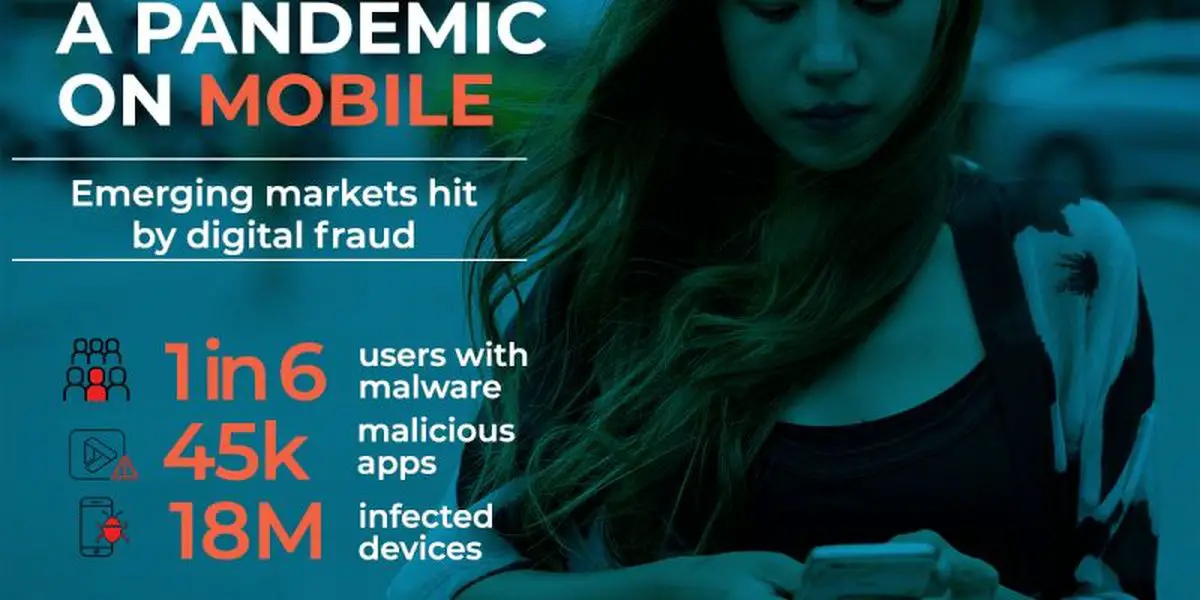One in six Android phones is infected with malware in developing countries. Globally, 1 in 36 devices hosts malicious applications.
The coronavirus pandemic has increased the use of the Internet. And this is being exploited by cybercriminals to generate new victims.
The impact of the health crisis on IT security is being felt especially in developing countries. An Upstream report on this topic reveals that 1 in 6 Android mobiles in these markets has at least one infected app installed.
Indonesia is the country with the highest infection rate of all those analyzed, with more than 99% of mobile transactions flagged as fraudulent. It is followed by Brazil, with a blocking rate of 96%, and Thailand, with close to 92%.

Globally, 1 in 36 devices hosts such apps considered high-risk.
“The digital divide has left users in emerging markets particularly vulnerable,” says Dimitris Maniatis, CEO of Upstream, “because their mobile devices are often their only gateway to the online world. They use them to connect to the internet and to pay for goods and services.
Another trend that Upstream has detected is that cybercriminals are diverting their attention away from Google Play and supporting their actions in other types of stores. 71% of malicious apps are currently available in these third-party stores compared to 49% the previous year.




